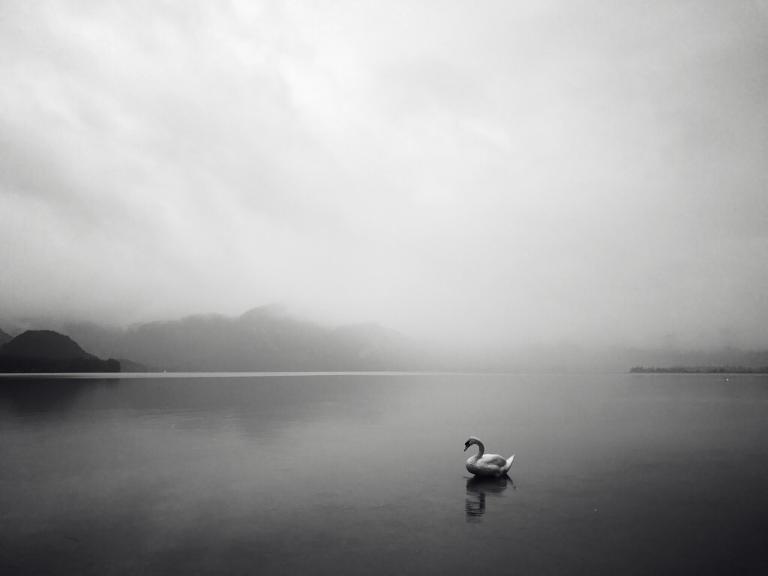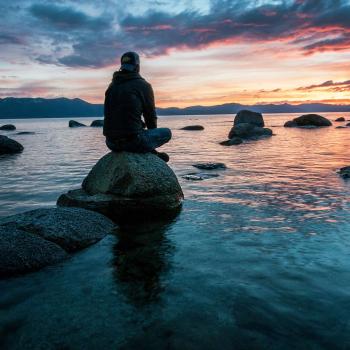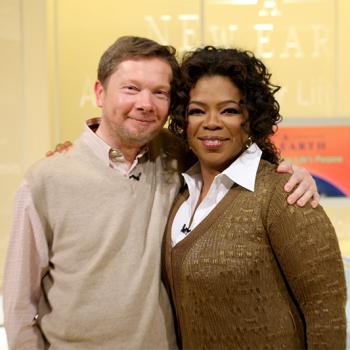You’re at home now. You’ve probably been at home for several weeks, save for the occasional walk around the block or trip to the local supermarket. And while you might have thought all this down time would be akin to floating on a tranquil sea, it has left you feeling a little unsettled.
Maybe it’s the way the work day bleeds into the night or your kids are acting up for the 20th time today or maybe the nonstop drumbeat of negative news has your stomach tied in a knot. Or maybe it’s just the fact you’ve been cooped up for too long with a spouse and/or family members who you dearly love, but whose near constant presence has begun to wear on you.
What you need is a little more stillness.
In the book Stillness is The Key, the author Ryan Holiday reminds us that we are at our best, when we can achieve a level of inner stillness. When our minds and hearts are at peace, we are at peace. We see the world more clearly and make smarter decisions, because we can more easily sort out good moves from bad ones and what’s in the best interests of ourselves and our family.
Holiday says that when we achieve stillness, “we can be present and finally see truth…we can hear the voice inside us.” With stillness comes the ability to view the world with greater empathy and understanding. Holiday describes this state of mind using an analogy that is found in both Stoicism and Buddhism:
The world is like muddy water. To see through it, we have to let things settle. We can’t be disturbed by initial appearances, and if we are patient and still, the truth will be revealed to us.
The key, as in meditation, is to get to a place where we are not “lingering on the past or fretting about the future.” All we really have is this moment and we can choose to be here for it, and “make what you can of what you have been given,” or we can allow our minds to be lost in thought about what once was or what might be. Holiday reminds us:
There is no greatness in the future. Or clarity. Or insight. Or happiness. Or peace. There is only this moment.
Now it’s one thing to realize that our lives are best lived in the present moment, but it’s another to actually live that way. What follows are 5 actions that can help lead you to stillness or help enhance it. When you can achieve a level of stillness, you’ll also find an inner contentment that makes the most of your enforced time at home.
- Ask yourself at every moment, is this necessary? This prompt is courtesy of the Stoic philosopher Marcus Aurelius. Holiday tells us we must “know what not think about and what to ignore. It’s your first and most important job.” In other words, if you suddenly find that you’ve lost the past 15 minutes in mindless thought, come back to the present moment and ask yourself: Is what I was thinking about constructive?
- Limit your inputs and turn down the volume. In other words, click off the TV and put down the phone, if only for a little while. By doing this, “we can access a deeper awareness of what’s going on around us. We can finally hear what the word has been trying to tell us…or what we’ve been trying to tell ourselves.”
- Practice saying no. All this down time has given us the ability to reflect on what activities and people really matter to us. Think about it, now that you’re doing nothing, what past activities were a waste of time? What really matters now? A key to a better use of your time is to practice saying “No, I’m not available. No, sorry, that sounds great, but I’d rather not. No, I don’t like that idea. No, I don’t need that.” Less needless activity = more quality time.
- Get out now. This idea comes from Professor John Stilgoe who advises us to “go outside, move deliberately, then relax, slow down, look around. Do not jog. Do not run. Instead pay attention to everything that abuts the rural road, the city street, the suburban boulevard. Walk. Stroll. Saunter. Ride a bike and coast a lot. Explore.” Like a walking meditation, even with movement, there’s stillness to be found.
- Develop your own moral code. Still can’t keep your mind from wandering? Then, put it to good use. Sit down and ask yourself three vital questions: “What’s important to me? What would I rather die for then betray? How am I going to live in the future and why?” Find the answers to these questions and you’ll go a long way to emerging from your post Covid-19 quarantine with a renewed sense of purpose.
What’s the importance of finding stillness on a regular basis? Holiday tells us that when we do, we “are more apt to develop a strong moral compass, steer clear of anger and envy, appreciate the world around us and cultivate relationships and love in our lives.” In other words, stillness helps you become a better human being. A goal we all should share during these sheltered times.














